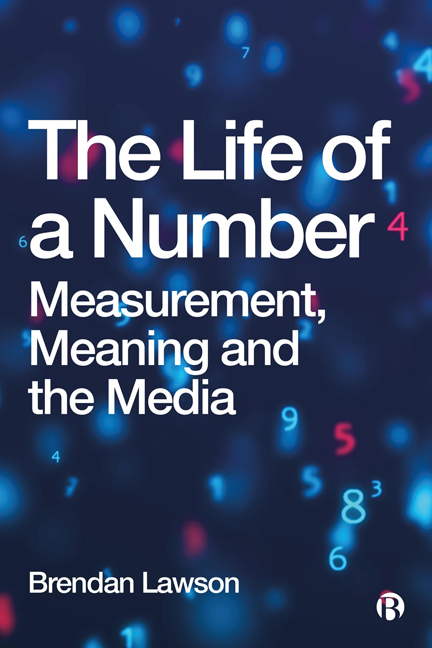Book contents
- Frontmatter
- Dedication
- Contents
- 1 Introduction
- 2 Data Bounds Are Reinforced by Policy
- 3 Quantitative Realism Underpins Data Bounds
- 4 Quantitative Realism Is Mathematical and Abstract
- 5 Desire for Data Bounds Underpins Quantitative Realism
- 6 Data Bounds Are Emotive
- 7 Data Boundaries Are Drawn Within Historical Norms
- 8 Critically Engaging with Data Bounds
- Afterword
- Notes
- References
- Index
5 - Desire for Data Bounds Underpins Quantitative Realism
Published online by Cambridge University Press: 18 January 2024
- Frontmatter
- Dedication
- Contents
- 1 Introduction
- 2 Data Bounds Are Reinforced by Policy
- 3 Quantitative Realism Underpins Data Bounds
- 4 Quantitative Realism Is Mathematical and Abstract
- 5 Desire for Data Bounds Underpins Quantitative Realism
- 6 Data Bounds Are Emotive
- 7 Data Boundaries Are Drawn Within Historical Norms
- 8 Critically Engaging with Data Bounds
- Afterword
- Notes
- References
- Index
Summary
On 27 May, WIRED UK online (Temperton, 2020) reported that The Plandemic conspiracy documentary had been ‘viewed more than eight million times across Facebook, Instagram, Twitter and YouTube’. Just over three weeks later, on 18 June, the UK section of Yahoo! News released an article titled ‘COVID conspiracies: 7% of Britons think there is no hard evidence that coronavirus exists, poll suggests’ (Wells, 2020a). Both statistics attempted to capture the public's belief in misinformation.
One number looked to tie belief with views: eight million people had viewed The Plandemic – a documentary that argued SARS-CoV-2 was deliberately released to control the world's population. The other figure was based on a traditional approach to public opinion: a set of survey questions asking people about their belief in misinformation. These two statistics were given their life through the narrative of the ‘infodemic’. This portmanteau of information and pandemic is described in most detail by the World Health Organization (WHO, 2020c):
An infodemic is an overabundance of information, both online and offline. It includes deliberate attempts to disseminate wrong information to undermine the public health response and advance alternative agendas of groups or individuals. Mis-and disinformation can be harmful to people's physical and mental health; increase stigmatization; threaten precious health gains; and lead to poor observance of public health measures, thus reducing their effectiveness and endangering countries’ ability to stop the pandemic.
It is at this point in the chapter that I face a juncture. I could take the section above as contextual – the foundation upon which a piece of research would examine why people believe in misinformation, where people receive disinformation from or how researchers can prevent people from believing in fake news. This is the path taken by much of the research on the infodemic – see the work of Brennen et al (2020) and Roozenbeek et al (2020) for two noteworthy examples from early in the pandemic. The approach by this chapter, however, follows a different tack. To do so, we must begin with the premises of the infodemic itself.
- Type
- Chapter
- Information
- The Life of a NumberMeasurement, Meaning and the Media, pp. 61 - 74Publisher: Bristol University PressPrint publication year: 2023

